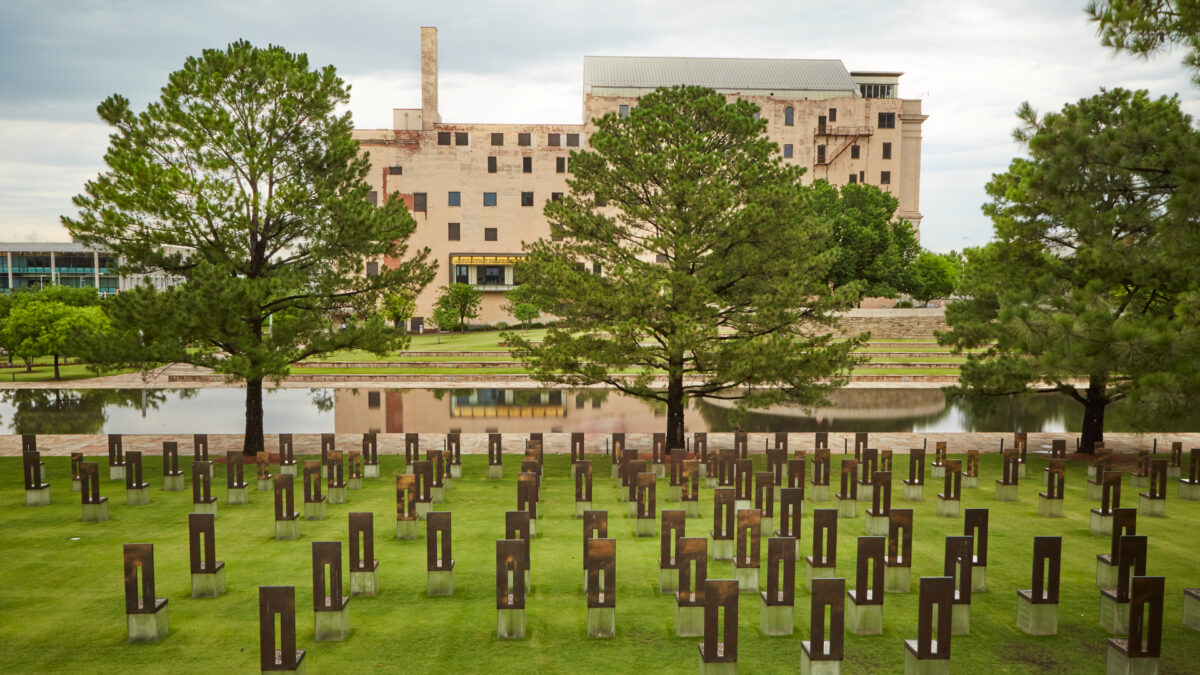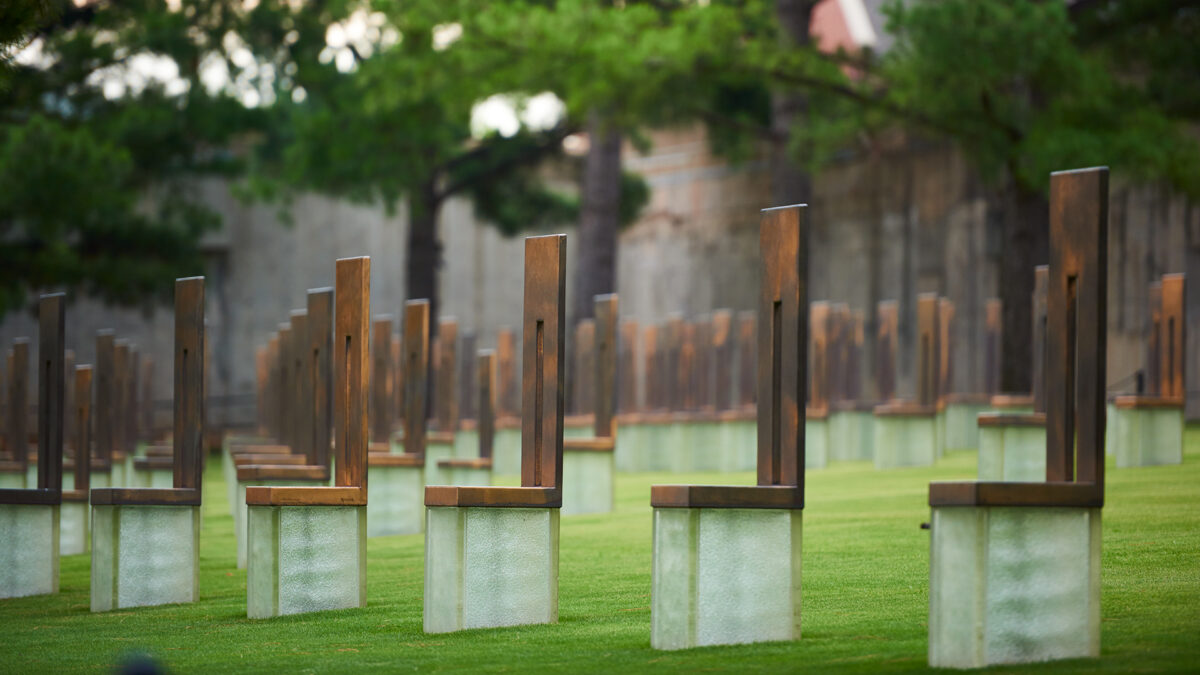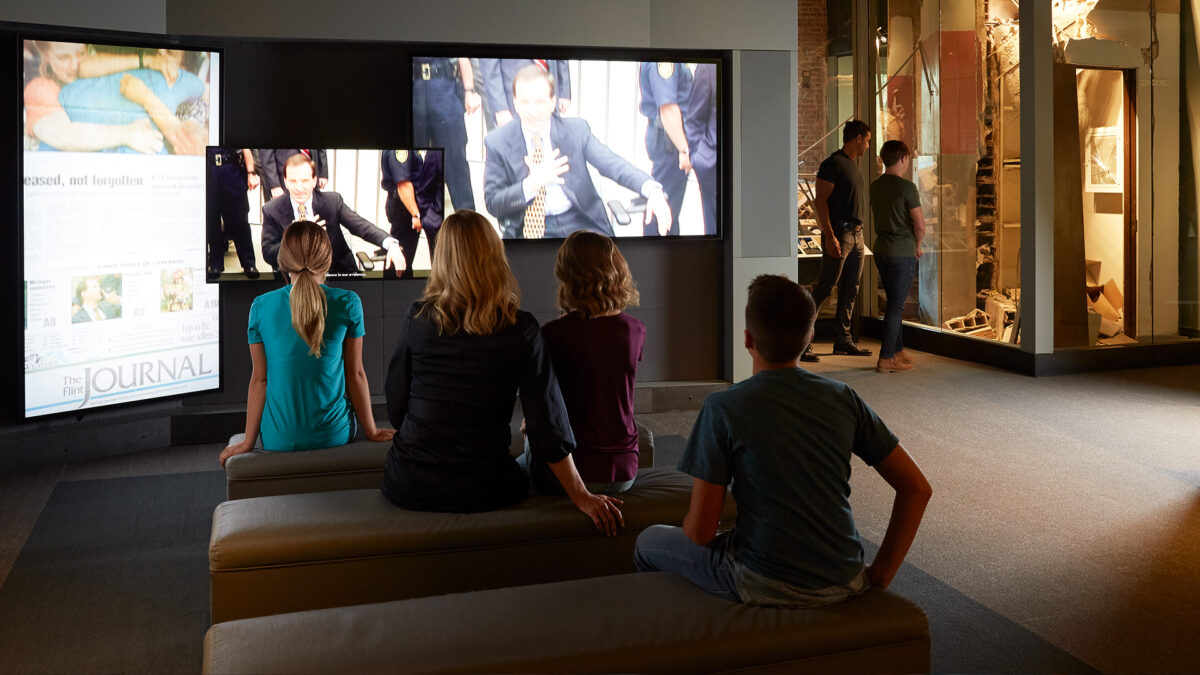Oklahoma City National Memorial & museum
★ OKCityCard Discount: Buy 1 adult admission, get 1 free
Show OKCityCard at the Museum ticketing counter to redeem offer; Offer valid for up to 1 discount per OKCityCard per visit

The Memorial and Museum’s Creation
We come here to remember those who were killed, those who survived and those changed forever. May all who leave here know the impact of violence. May this memorial offer comfort, strength, peace, hope and serenity.®

Like the response to the event it was meant to commemorate, the creation of the Oklahoma City National Memorial has been a cooperative effort involving many people and all levels of government. In 1995, Oklahoma City Mayor Ron Norick appointed a 350-member task force to explore ways to remember this tragic event and honor those killed. In March 1999, the task force issued its report. In the Memorial Mission Statement, the Task Force called for the creation of a memorial to remember those who were killed, those who survived and those changed forever – in short, all who were touched directly or indirectly by the bombing.
THE TASK FORCE ALSO CALLED FOR THESE MAJOR COMPONENTS
- In September 1996, the Task Force became the Oklahoma City National Memorial, a private 501(c)(3) dedicated to fulfilling that mission. From the very beginning, committees were drawn from the families of those who were killed in the bombing, survivors, first responders and volunteers who participated in the rescue and recovery efforts, and community volunteers.
- The Outdoor Symbolic Memorial was dedicated on April 19, 2000, the fifth anniversary of the bombing. President William J. Clinton joined more than 20,000 people to dedicate the site. Less than a year later, President and Mrs. George W. Bush dedicated the Memorial Museum on Presidents’ Day, February 19, 2001.
THE OKLAHOMA CITY NATIONAL MEMORIAL & MUSEUM IS COMPRISED OF TWO DISTINCT BUT ETERNALLY INTERWOVEN PARTS
The Outdoor Symbolic Memorial is a place of quiet reflection. It honors those who were killed, those who survived and those changed forever on April 19, 1995. It encompasses the now-sacred soil where the Murrah Building once stood, as well as the surrounding area devastated by the attack. The Memorial is open to all 24 hours a day, year-round.

The Memorial Museum is an interactive learning experience that occupies the west end of the former Journal Record Building. Built in 1923, this building withstood the bombing. The state-of-the-art Memorial Museum takes visitors on self-guided tours through the story of those who were killed, those who survived and those changed forever by the April 19, 1995, bombing of the Alfred P. Murrah Federal Building – as well as the world’s response in its aftermath. The Museum uses 35 interactives as well as hundreds of hours of video and artifacts to show visitors each personal detail. Museum Admission fees help maintain the Memorial.

